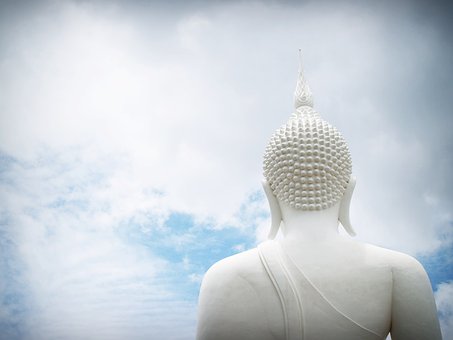Buddhism exists wherever there are sentient beings in contemplation.
One need not be a Buddha to attain enlightenment. Many have come close all over the globe. Many have dwelled in nirvana, whether for a short time or for eternity, no matter what tradition led them there. The historical Buddha, Shakyamuni, was the first to tell his followers that he nothing more than what they could teach themselves. Buddhism, a godless religion, is open to all with the will to see and hear and feel and smell and taste things as they are. 
There was a historical Buddha and so there is a school of thought that has grown about his life and words. That isn’t what the Buddha taught. If you seek enlightenment, you can do well enough without the sutras, the Shastas, the bodhisattvas, and the hogwash. If you choose to sit still and become one with the world, forget yourself and be yourself, no matter what you call yourself, you are Buddhist. There are more Buddhas than there are grains of sand on the beach closest to your house. There are more Buddhas than there are grubs in the garden. Roses bloom from manure. Saint Francis knew this and he was as mendicant as any Buddhist monk.
You don’t need to name God in order to know Him or Her or It.
God goes beyond all explanation. Life is that way. We exist for in a blink of history, soon to be replaced by something much similar. That is the Buddha’s lesson. Other sages tell us the same. We know it in our hearts when we make the effort to pay attention. We can discuss schools of Buddhism just as we can discuss denominations of Protestantism.
Where does it get us in the end? Many roads lead to the same destination. Two painters never produce the same masterpiece, but both are valid views. Some teachings strike a chord while others leave one silent and wanting more. Doctrine does that. You find the Buddha where you find him. You find him in your heart. The Buddha can be her.
Wherever you live, in whatever circumstances, the means to enlightenment offer themselves up for the picking.
You needn’t be versed in lore or mythology or know the difference between Hinayana and Mahayana. The destination is still the same. You lose your self in the godhead divinity that makes up and informs everyday life. With an open eye and an open heart, all things are possible and if nothing happens everything is meant to be as it is. This isn’t a defeatist resignation, it is accepting the promises that are delivered based on karma. What can happen will happen. What should happen will happen. If you long for something else, not more, you need to act differently. This is the most scientific, cause-and-effect spirituality mankind has ever conceived. Why would our senses lie now? They wouldn’t. They shouldn’t after we’ve trusted them so long to get us through every day. They couldn’t. They can’t.





